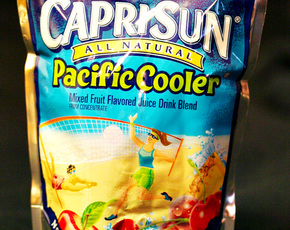Is Biting Your Nails Bad For You?
Also Known As: onychophagy, onychophagia
Short answer
Nail biting, besides being a sign of an underlying mental problem, can have negative consequences to your health. It is best to avoid nail biting entirely and seek help if you find yourself not being able to stop.
Harmful to your health. Very few, if any, benefits are present. Things in this category should be avoided as much as possible.
View Full Grading System
Category 'A'
Very healthy and numerous health benefits. Side effects are rare. Things rated an 'A+' are typically necessary for survival (for example, water).
Very healthy and numerous health benefits. A few harmful qualities may be associated, but only under certain circumstances such as an allergic reaction.
Very healthy and numerous health benefits. Harmful qualities may be associated, but aren't usually serious.
It is important to note that even the best things in life can become bad in immoderate amounts. So, although something may be rated an 'A+', overconsumption/overdoing can bring unwanted effects.
Category 'B'
Very beneficial to your health. Things rated a 'B+' may have a few harmful qualities to pay attention to.
Overall beneficial to your health. Things rated a 'B' may have some harmful qualities to pay attention to.
More beneficial to your health than not. However, harmful qualities are most likely associated and shouldn't be overlooked.
The main difference between category 'A' and category 'B' is the harmful qualities typically present in 'B' items. Serious side effects are usually uncommon, but are still possible and should be taken note of.
Category 'C'
Both beneficial and harmful qualities associated. Things rated a 'C+' are typically a bit more on the beneficial side. Still, moderation is important.
A fairly even ratio of beneficial and harmful qualities. Moderation is important. Very general topics that can lean towards both sides of the spectrum will be placed here as well. Rice, for example, can be good or bad depending on the type.
More harmful than beneficial. Side effects are common, especially when consumed/done excessively. Moderation is very important.
Category 'C' usually denotes to both good and bad qualities. When it comes to this category, it is important to keep this word in mind: moderation.
Category 'D'
Harmful to your health. Although benefits may be associated, the bad most likely outweighs the good. Moderation is very important.
Harmful to your health. A few benefits may be associated, but the bad outweighs the good. Moderation is extremely important.
Harmful to your health. Very few, if any, benefits are present. Things in this category should be avoided as much as possible.
Category 'D' is typically for things that are more harmful than beneficial. While consuming/doing something unhealthy once in a blue moon shouldn't hurt, we definitely recommend eliminating 'D' items as a regular part of your routine/diet.
Category 'F'
Category 'F' is for things that fail to bring anything beneficial to the table, and are very harmful to your health. We recommend completely avoiding anything in this category. Long-term side effects of 'F' items are usually very serious.
Category 'N'
'N' stands for neutral. Things placed into this category are generally (a) neither good nor bad for you, or (b) lack the necessary evidence to reach any conclusions.
Long answer
At its most harmless, nail biting is an annoying, often embarrassing habit. However, there are consequences far greater than mild annoyance. Nail biting, or onychophagia, is a habit most common in teenagers (45%) and young adults (25%) that may continue through later adulthood at which point it affects approximately 5% of the population. Common causes include stress, depression, and boredom. While nail biting does not have any major long-term effects on the nails, several other areas are prone to developing problems.
First is the risk of introducing pathogenic bacteria into the system. Various bacteria live under the fingernails, such as E. coli and Salmonella, making nail biting an easy way to become sick. The chances of you becoming sick are low and vary based on hygiene, but it is still something to be aware of.
The areas affected by nail biting are the skin around and under the nails, the teeth, and the mouth. Biting nails may lead to skin abrasions through which bacteria can enter, causing problems such as swelling and pus. This is known as paronychia. In extreme cases, surgery may become necessary. One bacteria that may enter due to nail biting is wart-causing HPV (not the same as the HPV strain associated with cancer), which may be transferred to the mouth.
Chronic nail biting may also lead to dental problems such as misalignment of the teeth, weakened teeth, and the teeth becoming misshapen. Other risks associated with nail biting include gingivitis and nail fungus. Keeping your hands busy and nails neatly trimmed are two easy ways to overcome nail biting.
Possible short-term side effects
- aesthetically displeasing nails
-
embarrassment
-
paronychia
-
gingivitis
-
warts
-
nail fungus
-
swelling / pus
-
illness from bacteria
Possible long-term side effects
- anxiety
-
weakened teeth
-
misalignment of the teeth
Healthier alternatives
- keeping hands busy
-
keeping nails trimmed properly
Please turn your Ad Blocker off to see this content. Thank you!
Thank you for your feedback!
Written by Jeff Volling
Published on: 12-28-2015
Last updated: 12-10-2016
Thank you for your feedback!
Written by Jeff Volling
Published on: 12-28-2015
Last updated: 12-10-2016
 Approved by
Approved by 















